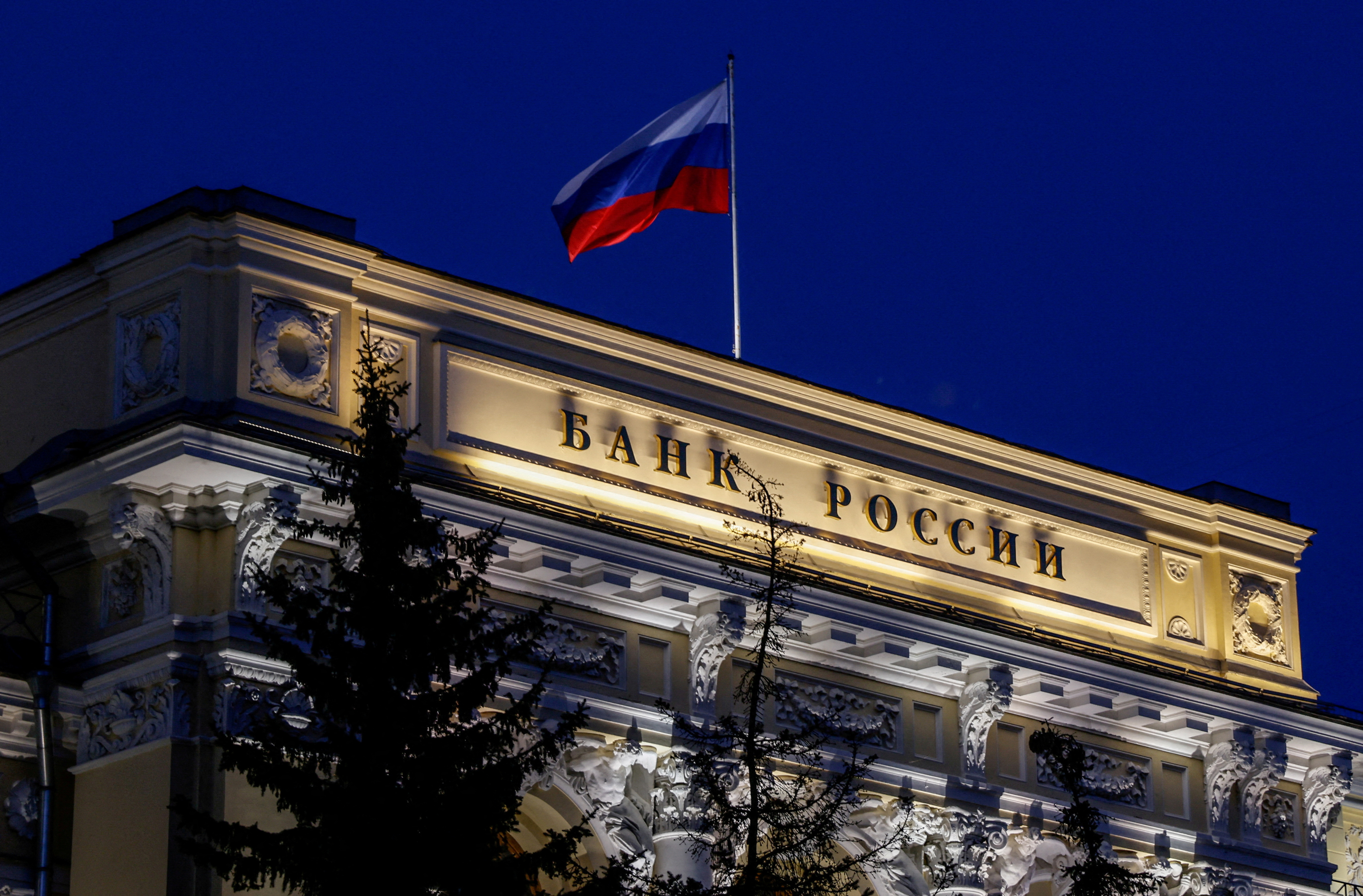

National flag flies over the Russian Central Bank headquarters in Moscow, Russia May 27, 2022. REUTERS/Maxim Shemetov//File Photo Acquire Licensing Rights
Sept 1 (Reuters) – Russian central bank head Elvira Naibullina said on Friday that she did not rule out a further hike in interest rates to address continued inflationary risks, and said rates were more likely to shore up the rouble than tighter currency controls.
The central bank raised its key rate by 3.5 percentage points to 12% at an emergency meeting on Aug. 15 amid rising inflation, stemming a sharp fall in the value of the rouble, which has been dragged down by the impact of Western sanctions on Russia’s trade balance and soaring defence spending.
But despite helping to pull the currency back from its lowest levels since March 2022, the move has not allayed the concerns of the finance ministry.
The government would prefer to see the rouble, which was on Friday trading at around 96.00 to the dollar at around 80-90.
In August it proposed again requiring exporters to convert some foreign currency earnings into roubles, a measure that had been imposed temporarily last year.
A Reuters poll indicated on Friday that accelerating inflation will force Russia to maintain double-digit interest rates well into next year, while the rouble has little prospect of staging any significant recovery in the next 12 months.
After raising rates last month, the central bank said inflation over the previous three months had averaged an annual 7.6%, on a seasonally adjusted basis, far above its 4% target, and that inflationary pressures continued to rise.
Nabiullina told a banking forum that these pressures remain.
Later, in a conversation with reporters, she said there was little chance of a rate cut at the Russian central bank’s next policy meetings, and declined to rule out an increase, saying rates were also the better way to stabilise the rouble.
“We applied currency control measures in the spring to stabilise the situation in the financial market. Now, currency control measures, in my opinion, should remain primarily those that are of a mirror nature, reciprocal in nature,” Nabiullina told the forum.
“And such currency restrictions should not create difficulties for our economic actors, who are now – albeit with great difficulty – finding ways to make payments and conduct economic activities.”
Russia has been forced into emergency measures to keep foreign trade and payments flowing and shore up the rouble since the West imposed sweeping economic and financial sanctions last year in response to its military campaign in Ukraine.
Finance Minister Anton Siluanov, addressing the same banking forum, said his ministry and the central bank were still seeking consensus on currency control.
Siluanov said that previously, the central bank had been stricter on the issue, and his ministry more liberal, but that it was now the other way around.
But Nabiullina told reporters: “A return to mandatory sale of foreign currency earnings may not give the effect that is expected from it.”
She said Russia’s exporters received a significant part of their export earnings in roubles and that, while foreign exchange market turnover was increasing, “the balance of supply and demand is not changing”.
“The main thing is to increase the attractiveness of roubles, and therefore we believe that increasing the key rate will gradually contribute, with a lag, to stabilising the exchange rate.”
Reporting by Lena Fabrichnaya and Darya Korsunskaya; Writing by Kevin Liffey; Editing by Alexander Smith
Our Standards: The Thomson Reuters Trust Principles.



